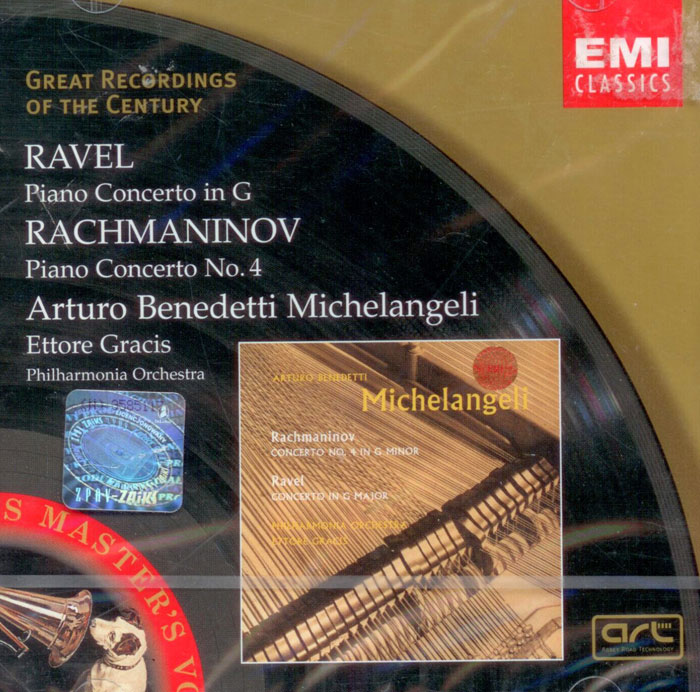Logowanie
Dlaczego wszystkjie inne nie brzmią tak jak te?
Chai Lang, Fan Tao, Broadcasting Chinese Orchestra
Illusive Butterfly
Butterly - motyl - to sekret i tajemnica muzyki chińskiej.
SpeakersCorner - OSTATNIE!!!!
RAVEL, DEBUSSY, Paul Paray, Detroit Symphony Orchestra
Prelude a l'Apres-midi d'un faune / Petite Suite / Valses nobles et sentimentales / Le Tombeau de Couperin
Samozapłon gwarantowany - Himalaje sztuki audiofilskiej
PROKOFIEV, Stanislaw Skrowaczewski, Minneapolis Symphony Orchestra
Romeo and Juliet
Stanisław Skrowaczewski,
✟ 22-02-2017
BARTOK, Antal Dorati, Philharmonia Hungarica
Dance Suite / Two Portraits / Two Excerpts From 'Mikrokosmos'
Samozapłon gwarantowany - Himalaje sztuki audiofilskiej
ENESCU, LISZT, Antal Dorati, The London Symphony Orchestra
Two Roumanian Rhapsodies / Hungarian Rhapsody Nos. 2 & 3
Samozapłon gwarantowany - Himalaje sztuki audiofilskiej
Winylowy niezbędnik
ClearAudio
Cartridge Alignment Gauge - uniwersalny przyrząd do ustawiania geometrii wkładki i ramienia
Jedyny na rynku, tak wszechstronny i właściwy do każdego typu gramofonu!
ClearAudio
Harmo-nicer - nie tylko mata gramofonowa
Najlepsze rozwiązania leżą tuż obok
IDEALNA MATA ANTYPOŚLIZGOWA I ANTYWIBRACYJNA.
Wzorcowe
Carmen Gomes
Celebrating the art and spirit of music - vol. 5 - Reference Songs
- CHCECIE TO WIERZCIE, CHCECIE - NIE WIERZCIE, ALE TO NIE JEST ZŁUDZENIE!!!
Petra Rosa, Eddie C.
Celebrating the art and spirit of music - vol. 3 - Pure
warm sophisticated voice...
SAMPLER - STS DIGITAL, Gregor Hamilton
Celebrating the art and spirit of music - vol. 2 - Love songs from Gregor Hamilton
...jak opanować serca bicie?...
SAMPLER - STS DIGITAL
Celebrating the art and spirit of music - vol. 1 - Leonardo Amuedo
Największy romans sopranu z głębokim basem... wiosennym
Lils Mackintosh
Celebrating the art and spirit of music - vol. 4 - A Tribute to Billie Holiday
Uczennica godna swej Mistrzyni
RAVEL, RACHMANINOV, Arturo Benedetti Michelangeli, Ettore Gracis, The Philharmonia Orchestra
Piano Concerto No. 4 / Piano Concerto in G major
Artistic Quality: 10 Sound Quality: 10 Arturo Benedetti Michelangeli’s classic recordings of the Ravel G major and Rachmaninov G minor concertos have never been out of the catalog since they first appeared more than 40 years ago. Surface and style are one in this music, and the Italian pianist remains unsurpassed for his icy precision and micro-detailing. He brings pinpointed élan to Rachmaninov’s sizzling cross-rhythms in the Fourth Concerto’s Allegro Vivace movement, as well as laser-like concentration to the tartly lush Largo. Few have matched Michelangeli’s nuance and color in the Ravel concerto, and his seamless dispatch of Ravel’s “singing sword” effect in the opening movement belies the notion that you can’t bend notes on a piano. One could be nitpicky in regard to Michelangeli’s “old-fashioned” breaking of hands in the slow movement, but the music’s rippling aura can easily absorb such quirks. Ettore Gracis puts the Philharmonia Orchestra through its paces, and the players respond with scintillating brilliance. EMI’s new transfer reveals less tape hiss than heard in both the 1988 CD release and Philips’ “Great Pianists” edition of the Ravel, yet boasts more body, definition, and presence. If you missed these performances in EMI’s aforementioned full-price incarnation, don’t delay acquiring these better transfers at midprice. No classical collection should be without them. - See more at: https://www.classicstoday.com/review/review-4053/#sthash.K08aW83I.dpuf ****** Diapason d'Or, FFFF. de Télérama & Penguin Guide Awards “In the Rachmaninov, the heroic virtuosity of Michelangelo's playing banished any doubts that this composition was a poor shadow of its predecessors, while the cool demeanour and exquisite subtlety of the Ravel slow movement remains peerless.” BBC Music Magazine, January 2012 “In crude and subjective terms Michelangeli makes the spine tingle in a way no others can approach. How does he do it? This is the secret every pianist would love to know, and which no writer can ever pin down. But it's possible to give some general indications. It isn't a question of technique, at least not directly, because Ashkenazy, for example (on Decca) can match their most virtuoso feats; indirectly, yes, it's relevant, in that there are dimensions in Michelangeli's pianism which allow musical conceptions to materialise which might not dawn on others. Nor is it a question of structure, in the narrow sense of the awareness of overall proportions, judicious shaping of paragraphs, continuity of thought; but the way structure is projected and the way it's transmuted into emotional drama; these things are critical. In one way or another most of the recordings in this section respond vividly to the excitement of Rachmaninov's dramatic climaxes; but with Michelangeli these climaxes seem to burst through the music of their own volition, as though an irresistible force of nature has been released. It's this crowning of a structure by release, rather than by extra pressure, which gives the performance a sense of exaltation and which more than anything else sets it on a different level. It enables him to be freer in many details, yet seem more inevitable as a whole. The impact of all this would be negligible without a sympathetically attuned conductor and orchestra. Fortunately that's exactly what Michelangeli has. Michelangeli's Ravel is open to criticism, partly because many listeners feel uncomfortable with his persistent left-beforeright mannerism in the slow movement and with his unwarranted textual tinkerings (like changing the last note). But he's as finely attuned to this aloof idiom as to its temperamental opposite in the Rachmaninov. And although the recording can't entirely belie its vintage, it does justice to one of the finest concerto records ever made.” Gramophone Classical Music Guide, 2010
























